Search Images
Browse Content (p. 1536)
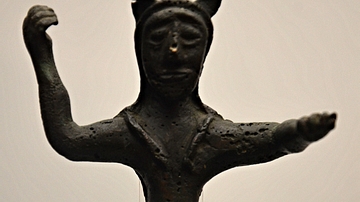
Image
Votive Statue of Melqart
Votive statue of Melqart from Gades (Cadiz, Spain), 7th century BCE. (Archaeological Museum, Seville). Melquart was a Phoenician god and patron god of the city of Tyre.
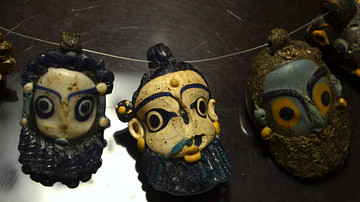
Image
Phoenician/Punic Necklace with Amulets
Phoenician or Carthaginian amulets in the form of bearded heads made of sand-core glass, 4th-3rd century BCE (Cagliari, Museo Archeologico Nazionale).
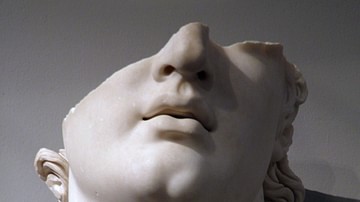
Image
Hellenistic Colossal Head of a Youth
Fragmentary colossal head of a youth, from the Pergamon Gymnasium, Hellenistic period, 2nd century BCE (Pergamon Museum, Berlin)

Image
Triumph of Titus
A reconstructed relief panel from the original on the Arch of Titus, Rome, c. 81 CE. The scene, showing the triumph of Titus, is carved in three-quarter view and has Titus riding a four-horse chariot (quadriga) and shows him being crowned...
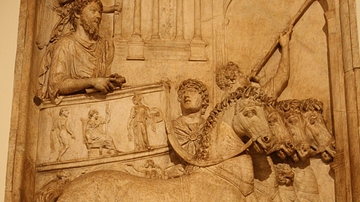
Image
Triumph of Marcus Aurelius
A panel from a Roman sarcophagus depicting the triumph of Marcus Aurelius. (Capitoline Museums, Rome)
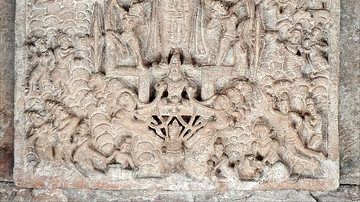
Image
Relief Sculpture of Surya in Virupaksha Temple, Pattadakal
Surya (sun) in his chariot as depicted in Virupaksha Temple, Pattadakal. The temple is an Early Chalukyan (543 CE – 753 CE) creation and is built by Queen Loka Mahadevi.
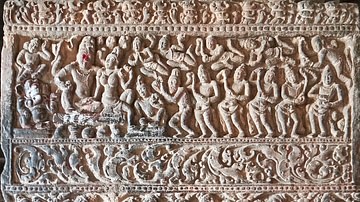
Image
Hara Gauri in Virupaksha Temple, Pattadakal
Hara Gauri in Virupaksha Temple, Pattadakal built during Early Chalukyan era (543 CE – 753 CE).

Image
Neo-Assyrian Cuneiform Lexical List
Neo-Assyrian lexical list of names of stones on a clay tablet.

Image
Babylonian Cuneiform Lexical List
Late Babylonian lexical list of personal names on a clay tablet.

Image
Portraits of Alexander and a Youth (Hephaestion?)
Marble portraits of Alexander the Great and a youth, perhaps Hephaestion, Alexander's closest companion, c. 325-320 BCE. One of the earliest surviving portraits of Alexander. (Metropolitan Museum of Art, New York, on loan from the J. Paul...